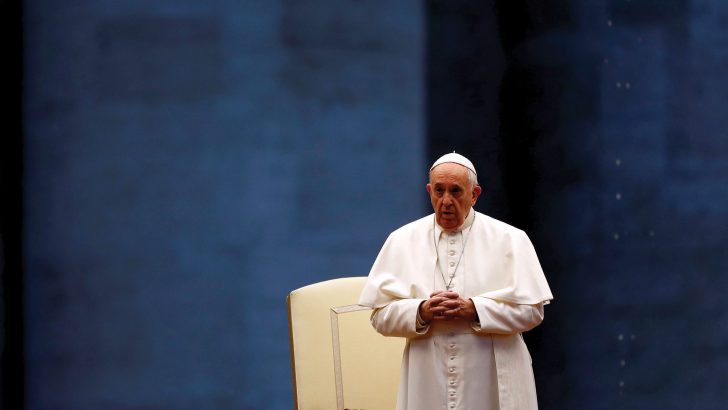Traditionalist communities ‘shocked’ at new measures
Ruadhán Jones and Chai Brady
Pope Francis’ new restrictions on the celebration of the Latin Mass have “shocked” some Traditional Latin Mass (TLM) communities, but others warn the Church faced “the peril of division” if the Pope hadn’t intervened.
Fr Liam Tracey, professor of Liturgy at Maynooth University told The Irish Catholic the Pope “has acted to defend the unity of the Body of Christ” and the Church faced “the peril of division” if he had not acted.
Under the new rules if a priest wishes to celebrate the Latin Mass according to the pre-Vatican II missal, he must now get permission from his bishop and the TLM can no longer be celebrated in parishes.
“This is a call to all those in the Church to heighten their efforts in celebrating the liturgy and to allow it to become truly the source and the summit of the life of the Church,” Fr Tracey added. “It is a call to Eucharistic renewal for every community.”
However, the chaplain of the Latin Mass Chaplaincy in Dublin Fr Gerard Deighan, said he was “shocked by it, and simply trying to digest it still”.
Another well-known Irish proponent of the TLM warned the Pope’s instruction could turn traditional communities into “a new ghetto”.
Fr Gabriel Burke, a curate in Blarney Parish, Co. Cork, and a populariser of the TLM in Ireland, said the instructions have put traditionalists “back on the margins instead of reaching out and welcoming them”.
“Traditionalists are fantastic people,” he continued. “They don’t just come to Mass, they live it throughout their whole life. And they’re very committed to the Church. And now you’re telling them, you’re not really that important.”
Whether or not the restrictions will have much of an affect in Ireland is not clear. Fr Burke believes the Irish bishops will “leave traditionalists to themselves”, as the bishops have always “been open to allowing the Latin Mass”.
The former president of the Latin Mass Society of Ireland Peadar Laighléis told this paper that he doesn’t “think the change is as dramatic as it appears to be at face value”.
“The regulations that are in place are not much different to what we had prior to Summorum Pontificum, which could be worked successfully,” Mr Laighléis said, adding that those attached to the extraordinary form must have a “realistic appreciation of where we’re at”.
Pope Francis acted having surveyed bishops regarding the implementation of Summorum Pontificum before releasing his own motu proprio, meaning an addition to Church law issued on the Pope’s own authority, titled Traditionis Custodes (“Guardians of Tradition”).
In response to a question regarding the future of the Latin Mass Chaplaincy in Dublin, the Irish Bishops Conference said the “bishops will be considering its implications and will have an opportunity to discuss the matter at their autumn plenary meeting”.


 Photo: CNS
Photo: CNS 